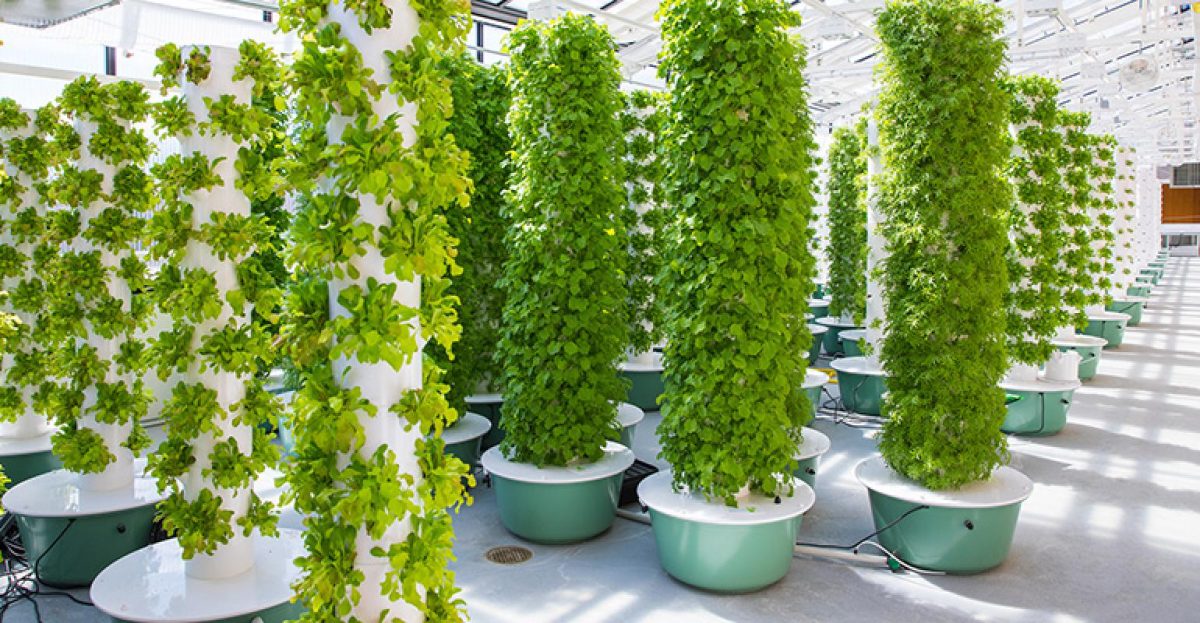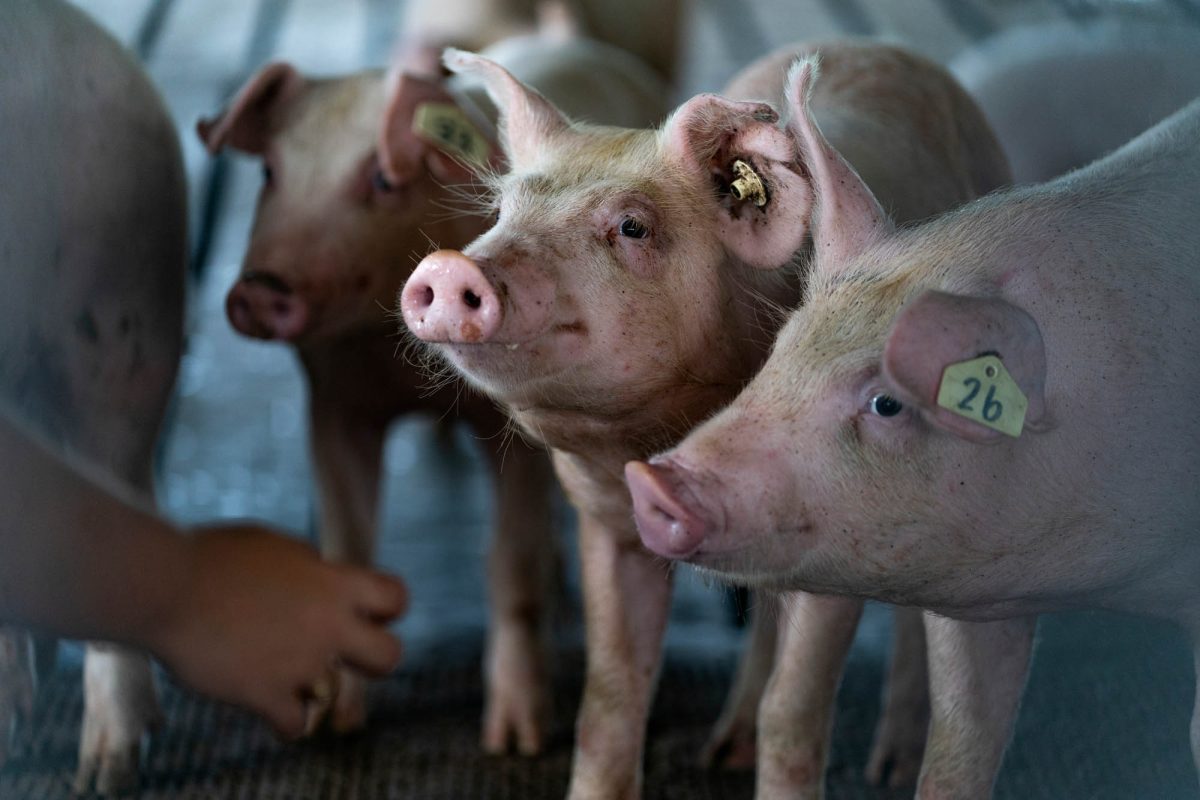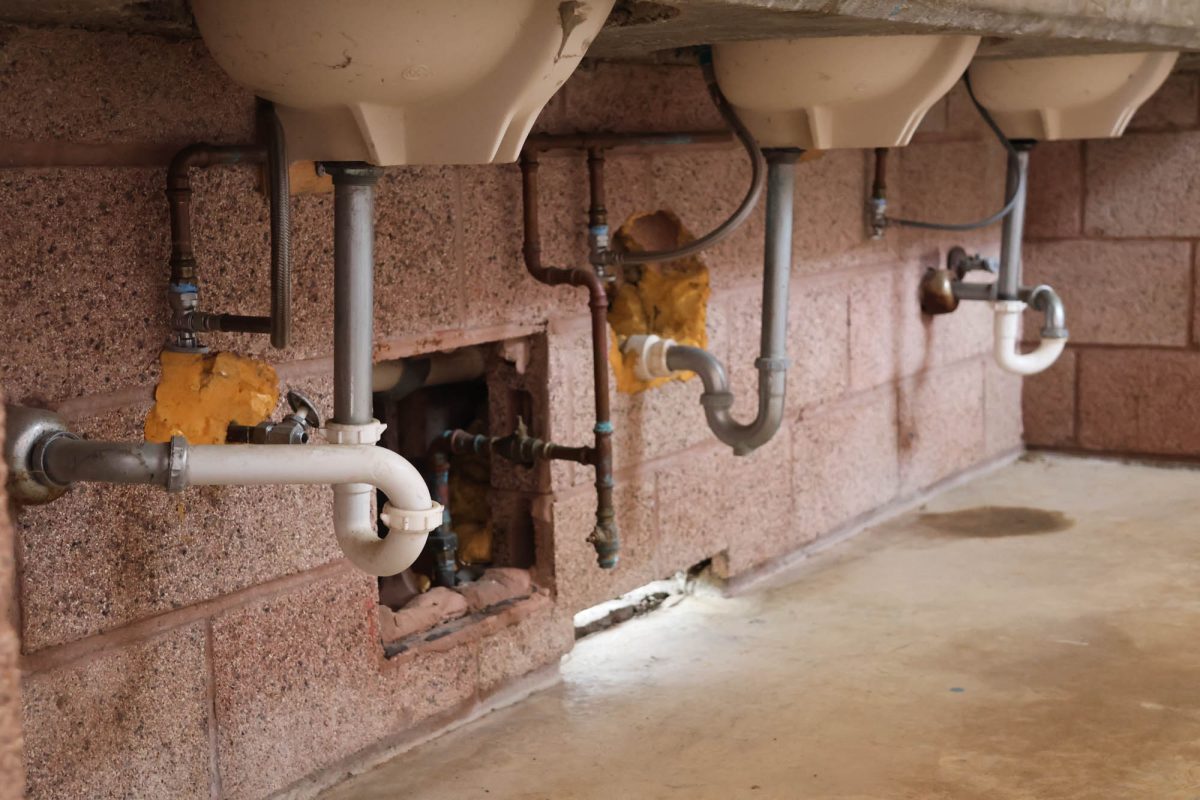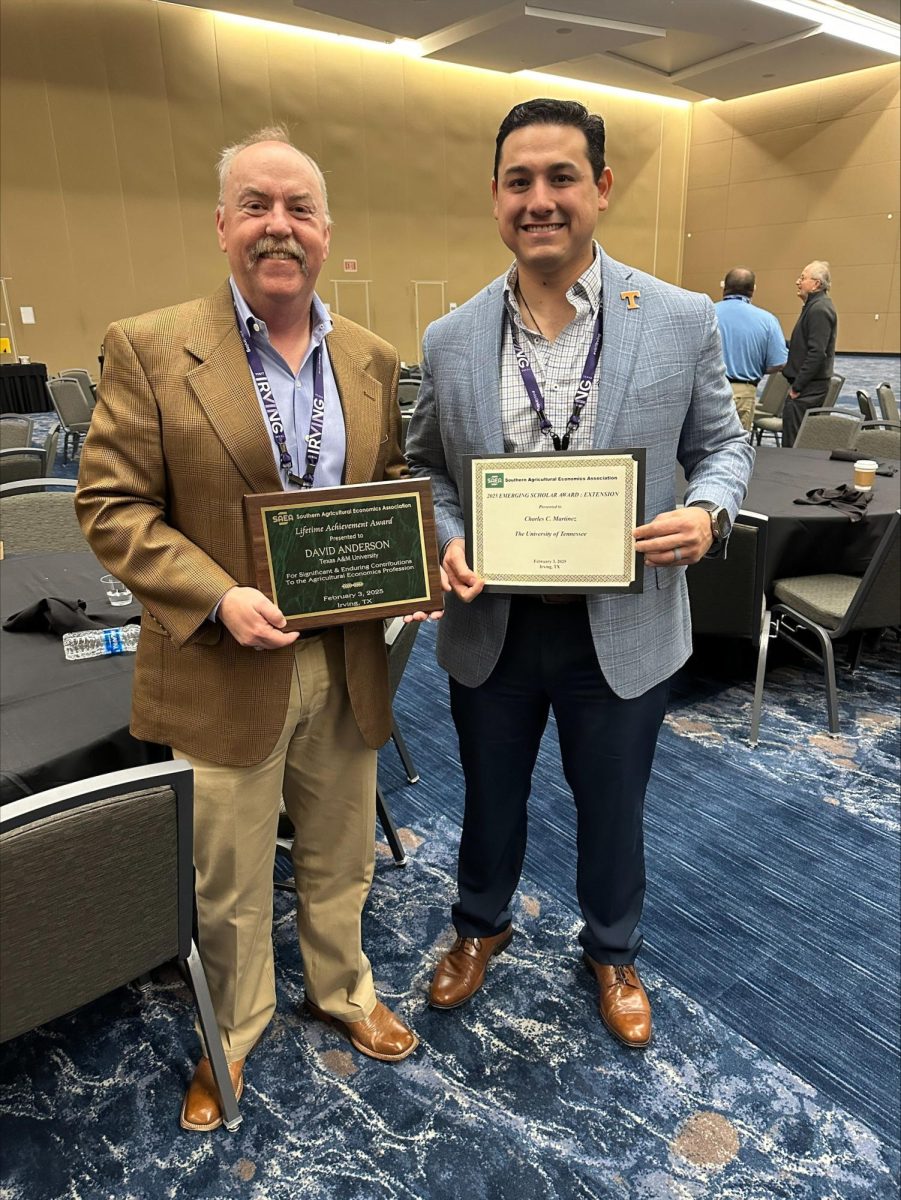TAMU Urban Farm United is a concept organization with the intent of introducing vertical farming to A&M’s campus and local community.
An Aggie Green Fund major grant project, TUFU is overseen by capstone students from various majors who grow the crops to provide food for locals. The group will be hosting an open house on Friday at 530 Floriculture Rd. from noon to 7 p.m.
TUFU was co-founded by Broch Saxton, plant and environmental soil science senior, and Lisette Templin, instructional assistant professor in health and kinesiology. Saxton, who serves as a student coordinator, said that it only made sense for A&M to develop methods of vertical farming, with such a historical background in agriculture; although originally Saxton envisioned using a hydroponic system, where the roots of plants would sit in water.
“In my interest, I see that it is not here, hydroponics isn’t here,” Saxton said. “So I was thinking to myself, ‘Why is it that this huge agriculture monster of an entity isn’t taking a step towards this specific agriculture field of interest?’”
Saxton said he and Templin both wanted to bring their respective expertise in order to help others in this innovative manner. It wasn’t until the two put their ideas together that they were able to commence with the building of the vertical farming towers.
“[Templin] had the tower garden idea,” Saxton said. “I came there thinking, ‘I want to get some help launching some sort of hydroponic system,’ and it turned into, ‘Okay, she has a similar idea that I do.’”
Saxton said he and Templi applied for a grant from the Aggie Green Fund. The application was submitted in 2018, but it wasn’t until the summer of 2019 that they could start working. According to the Aggie Green Fund website, the TUFU project was awarded $59,566 in the spring of 2019.
Templin said the project worked with The 12th Can, a food pantry for A&M students, faculty and staff, to provide a fresh and local food source with the first harvest on Nov. 7.
“This is the first time that The 12th Can has received fresh, locally grown, living food, that [has] not been sprayed with a chemical product,” Templin said.
Templin said the towers used for the vertical farming are based on an aeroponic system, an environment of air rather than soil for the plants. She said the tower system feeds the plants via mimic rain, and since each tower is isolated, contamination does not spread among them.
“The aeroponic system means that the roots are in a [cylindrical] tower base, where the roots are exposed to air,” Templin said. “There’s a pump that pumps the [mineral] water upward, and then the water trickles down like rain. And [that] feeds the roots with minerals and nutrients.”
Templin said the shape of the tower not only conserves space but is able to cycle the water as needed. Templin said the system also brings a 30 percent higher yield when compared to traditional alternatives.
“It uses 90 percent less water because there’s no evaporation,” Templin said “The only loss of water is through root absorption. It uses 90 percent less land because, per tower, we can grow forty-four heads of lettuce in about four square feet of space. [And] we don’t get earth-borne pests.”
Stephon Warren, plant breeding graduate student, is a member of TUFU and said the organization is trying to expand in any way possible. Warren said alongside forming business relationships, TUFU is looking to educate more students about the project.
Saxton said although he would be graduating soon, he was confident the project will grow and make connections in the academic and market settings. Saxton said too much effort has already been put into the project, and he only sees it growing in the future.
“We already have too much university involvement, student involvement and time invested from partners that we have accumulated,” Saxton said. “The interest is there and this is going to keep going when I’m gone.”
Vertical farming technique growing at A&M
November 12, 2019
Photo by Provided
TUFU
0
Donate to The Battalion
$2790
$5000
Contributed
Our Goal
Your donation will support the student journalists of Texas A&M University - College Station. Your contribution will allow us to purchase equipment and cover our annual website hosting costs, in addition to paying freelance staffers for their work, travel costs for coverage and more!
More to Discover










